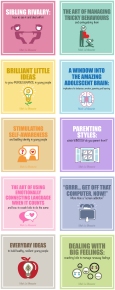Teaching Tough Kids
Chapter 4
Strategies to help organisation
Inside Tough Kids with learning disability and poor memory
Overview; Specific learning disabilityThe inconvenience of organisation
Building structures and routines Ideas to manage time, tasks and belongings
- Reduce books, folders and possessions
- Work in progress folder
- School bags
- Draws and lockers
- Case study, Clarkey's locker
- The pencil case
- Note taking
- Teach test-taking skills
- Teach memory helping techniques
- The piggyback techniques
- Case study, Sam's school diary and neighbours
- Tactile prompting
- Fragrant prompting
- Visual prompts
- Case study, a visual strategy - the difference between the success and failure for some
- The class timetable
- Morning lessons and materials required
- Class-monitor systems
- Personalised mini daily timetables
- Homework and homework timetables
- Homework essentials, for students
- Planners
- School diary
- Grab their attention!
- Case study, "It's on the sandwich board."
- The look
- Highlighters can help
- Progress charts
- Lists and checklists
- Auditory prompts
- Say it and write it
- Pair instructions
- Repeat it
- "What?"
- A keyword prompt
- Pre-teach
- Conclusion: what can a busy teacher do to help kids with learning difficulty?
- Offer reassurance
- Let kids see that you and the school can keep them connected
- Go multi-sensory
- Rely on visual supports
- Organise together
- Set realistic goals
- Boost confidence
- Use a reading program
- Take advantage of assistive technology
- Mobile phones
- Organisers
- The computer
- Reading
- Help with written work
- Let the computer write it
- Social skills
- Help them love their disability
Ask any youngster as they are about to enter school what they want to learn. Most will say, "I want to learn to read and write." Of course they do, after all, reading and writing is the mystifying and alluring language of the adult world. It's the place to aspire to.
This chapter is written for all the kids who set off to school intending to learn to read and write, remember and be organised and find success, but falter because of an unexpected and spectacular collection of invisible difficulties. Soon after starting school they realise their learning is not the same as the others. Every day the others read and write with apparent ease and scoot through the glorified reading boxes, while they struggle to crack the print code and burn with humiliation. This wasn't their dream. Shame quickly replaces the dream to read and write, and as it grows every kid ponders the question, "How can I keep my dignity? What can I do to take the focus away from my learning?"
A few turn their shame inwards and stop trying because it's impossible to fail if they don't try. As the emotional pain grows into baggage too heavy to carry a few will give up and refuse to go to school. Others contemplate the incomprehensible because they see that this may be a better option than dealing with their shame in front of their peers every day. For those who prefer to act out their shame, the script plays out with surprising speed, volatile emotion and errant behaviour. Contrary attitudes are honed to perfection. Not being able to crack the code still hurts, but at least the child begins to gain recognition for something. And all the while, school continues, day in and day out, promoting reading, spelling and writing as the very essence of learning. How is it that any child with a severe learning difficulty can remain emotionally intact when the very heart of learning and recognition hinges completely on having adequate literacy skills?
Gradually educators are intelligently dismantling the traditional notion that
students should only access information through the reading of print, and to
prove their knowledge acquisition, produce print in essay-type formats. As one
middle school student recently complained, "Doesn't my history teacher
get it?"
"If he wants me to write essays all the time then all he's testing
is my learning disability, and I'll just keep showing him that I've
got a really bad one."
Teachers often worry about the poor organisation and planning abilities of kids, especially those with learning difficulty. Unfortunately, engineering thoughtful structures, monitoring progress and reworking routines for students requires hard work. Some ideas are more effective than others, and most work for a while before they need a face-lift to meet a new challenge. The reality is that plans to organise those who do not yet have the natural capacity to organise themselves consumes precious time and energy. All students do best when working in a thoughtfully developed climate of routine, order and structure. Let's explore a myriad of simple way to develop organisation, planning and persistence...
Plus single $20 postage and handling fee












